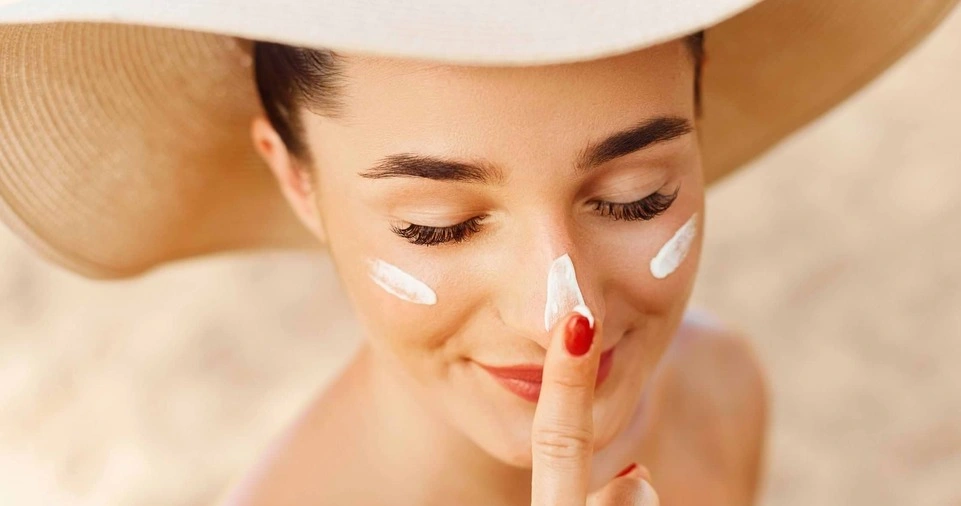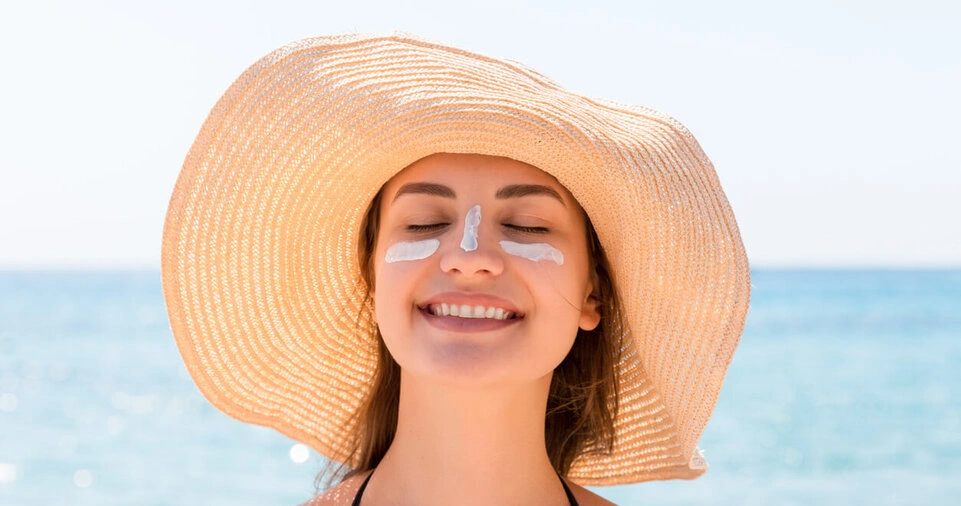Imagine stepping out into the sun without a shield—sounds risky, right? That’s precisely what happens when you skip sunscreen.
Whether it’s a sunny day at the beach or a cloudy afternoon in the city, wearing sunscreen is essential for maintaining healthy skin.
Yet, many people underestimate its significance and neglect to include it in their daily routine.
This article will uncover the essential role of sunscreen, debunk common myths, and provide actionable steps for incorporating it seamlessly into your skincare regimen.
Why Sunscreen Matters Every Day
Many people think sunscreen is only necessary during beach vacations, but the truth is that harmful UV rays are present year-round.
Whether it’s a bright summer afternoon or a cold winter day, UV radiation can penetrate clouds, windows, and even clothing.
Here’s why sunscreen should be non-negotiable:
- Protection Against UV Rays – The sun emits ultraviolet (UV) radiation, including UVA and UVB rays, which cause skin damage, premature aging, and even skin cancer.
- Prevents Premature Aging – Daily sunscreen use can prevent fine lines, wrinkles, and sunspots, keeping your skin youthful.
- Reduces Risk of Skin Cancer – Sunscreen is a proven method to lower the risk of melanoma and other skin cancers.
- Prevents Sunburns & Hyperpigmentation – Repeated sun exposure can lead to painful burns and uneven skin tone.
- Maintains Even Skin Tone – Sun damage often results in dark spots and discoloration; sunscreen helps keep your complexion clear.
- Reduces Inflammation – Sunscreen helps combat redness and irritation caused by excessive sun exposure.
- Enhances Effectiveness of Other Skincare Products – Sunscreen ensures that active ingredients in your skincare routine, such as retinol and vitamin C, work effectively without sun-induced interference.
How Sunscreen Works
Sunscreen acts as a protective barrier by either absorbing or reflecting UV radiation.
There are two main types:
- Chemical Sunscreens – Contain active ingredients like avobenzone and oxybenzone that absorb UV rays and transform them into heat.
- Physical (Mineral) Sunscreens – Use ingredients like zinc oxide or titanium dioxide to create a physical shield against the sun’s rays.
Both types are effective, but mineral sunscreens are often recommended for those with sensitive skin or allergies to chemical filters.
Choosing the Right Sunscreen

Not all sunscreens are created equal.
Here’s what to look for:
| Feature | Why It Matters |
|---|---|
| SPF 30 or Higher | Provides adequate protection against UVB rays. |
| Broad-Spectrum | Shields against both UVA & UVB rays. |
| Water-Resistant | Essential for swimming or sweating. |
| Non-Comedogenic | Won’t clog pores, ideal for acne-prone skin. |
| Contains Serum-Based Ingredients | Helps in skin hydration and nourishment. |
| Fragrance-Free | Reduces the risk of irritation, especially for sensitive skin. |
| Antioxidant Enriched | Provides extra defense against environmental stressors. |
ALSO READ: How to Recognize and Avoid Phishing Scams in Online Platforms
Sunscreen Application: Best Practices
Applying sunscreen correctly maximizes its effectiveness.
Follow these tips:
- Apply 15-30 minutes before sun exposure.
- Use at least a nickel-sized amount for the face and a shot-glass amount for the body.
- Reapply every two hours and immediately after swimming or sweating.
- Don’t forget often-missed spots like the ears, neck, back of hands, and tops of feet.
- Layer sunscreen with other skincare—apply it after your moisturizer but before makeup.
- Use spray sunscreens correctly—rub them in to ensure full coverage.
Myth vs. Fact: Common Sunscreen Misconceptions
| Myth | Fact |
|---|---|
| Sunscreen isn’t needed on cloudy days. | Up to 80% of UV rays penetrate clouds. |
| Darker skin tones don’t need sunscreen. | All skin types are susceptible to UV damage. |
| Makeup with SPF is enough. | Most makeup products don’t provide full coverage protection. |
| Sunscreen prevents Vitamin D absorption. | Moderate sun exposure still allows Vitamin D synthesis. |
| One application lasts all day. | Sunscreen needs reapplication every two hours for maximum effectiveness. |
Sunscreen & Your Skincare Routine
Incorporating sunscreen into your daily routine is simple:
- Cleanse & Tone – Start with a clean face.
- Apply Serum – Use a hydrating or vitamin C serum for added protection.
- Moisturize – Lock in hydration before sunscreen.
- Sunscreen – Finish with a broad-spectrum SPF.
- Makeup (Optional) – If using foundation, choose one with SPF for added protection.
Additional Tips for Sun Protection
Apart from sunscreen, you can enhance sun protection with these habits:
- Wear hats and sunglasses for extra coverage.
- Seek shade during peak sun hours (10 AM – 4 PM).
- Use UV-protective clothing when outdoors for long periods.
- Stay hydrated to keep skin healthy and resilient.
- Eat a diet rich in antioxidants—foods like berries, green tea, and nuts help your skin combat sun damage.
ALSO READ: How to Secure Group Chats for Confidential Discussions
Conclusion: Protect Your Skin, Every Day
Sunscreen isn’t just for beach days—it’s a crucial step in daily skincare that safeguards against long-term damage.
Investing in the right SPF and using it consistently will keep your skin youthful, radiant, and protected.
By combining sunscreen with other sun-safe habits, you can maintain beautiful and healthy skin for years to come.
Take Action Today: Start incorporating sunscreen into your routine and encourage your friends and family to do the same. Your future self will thank you!







